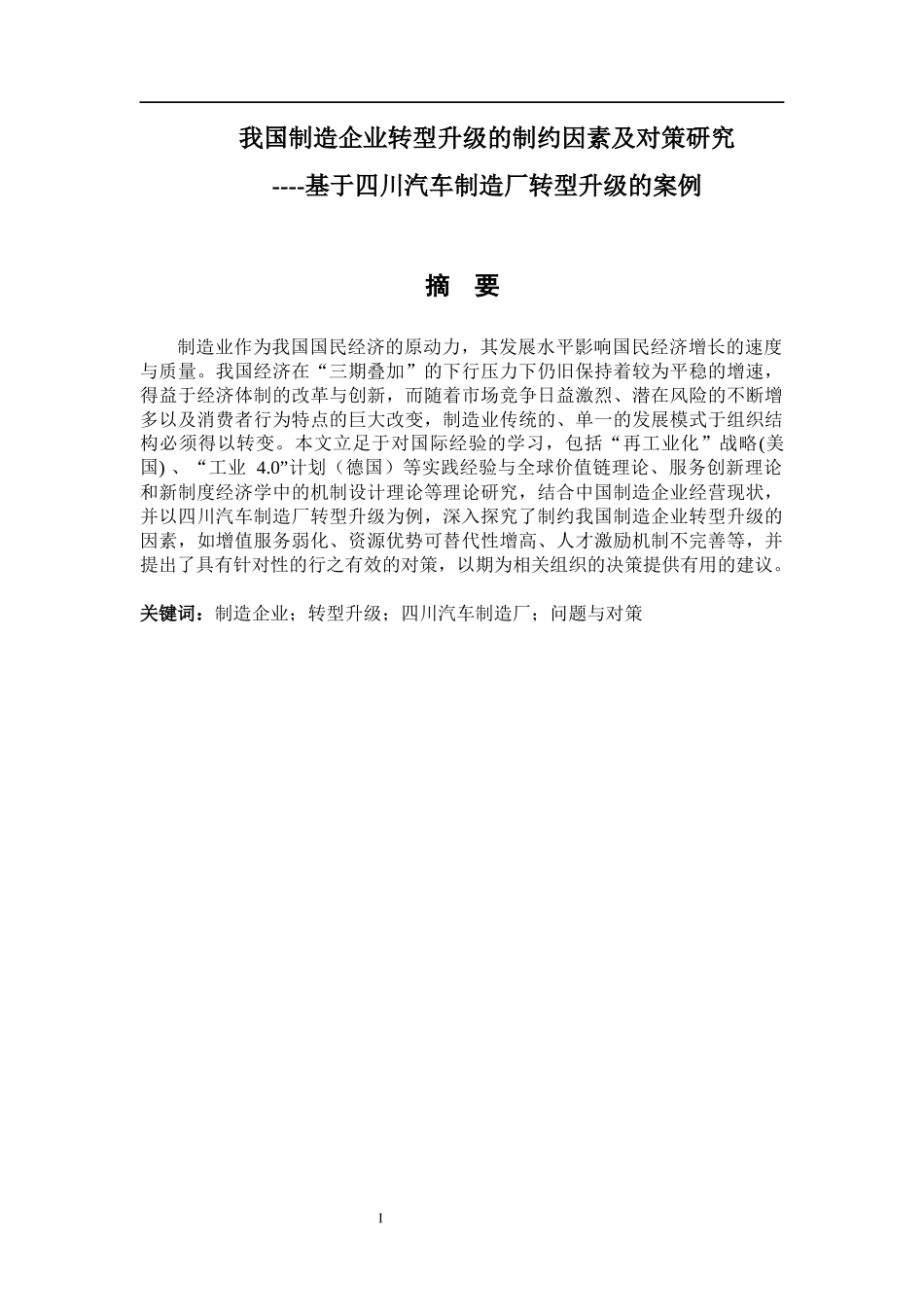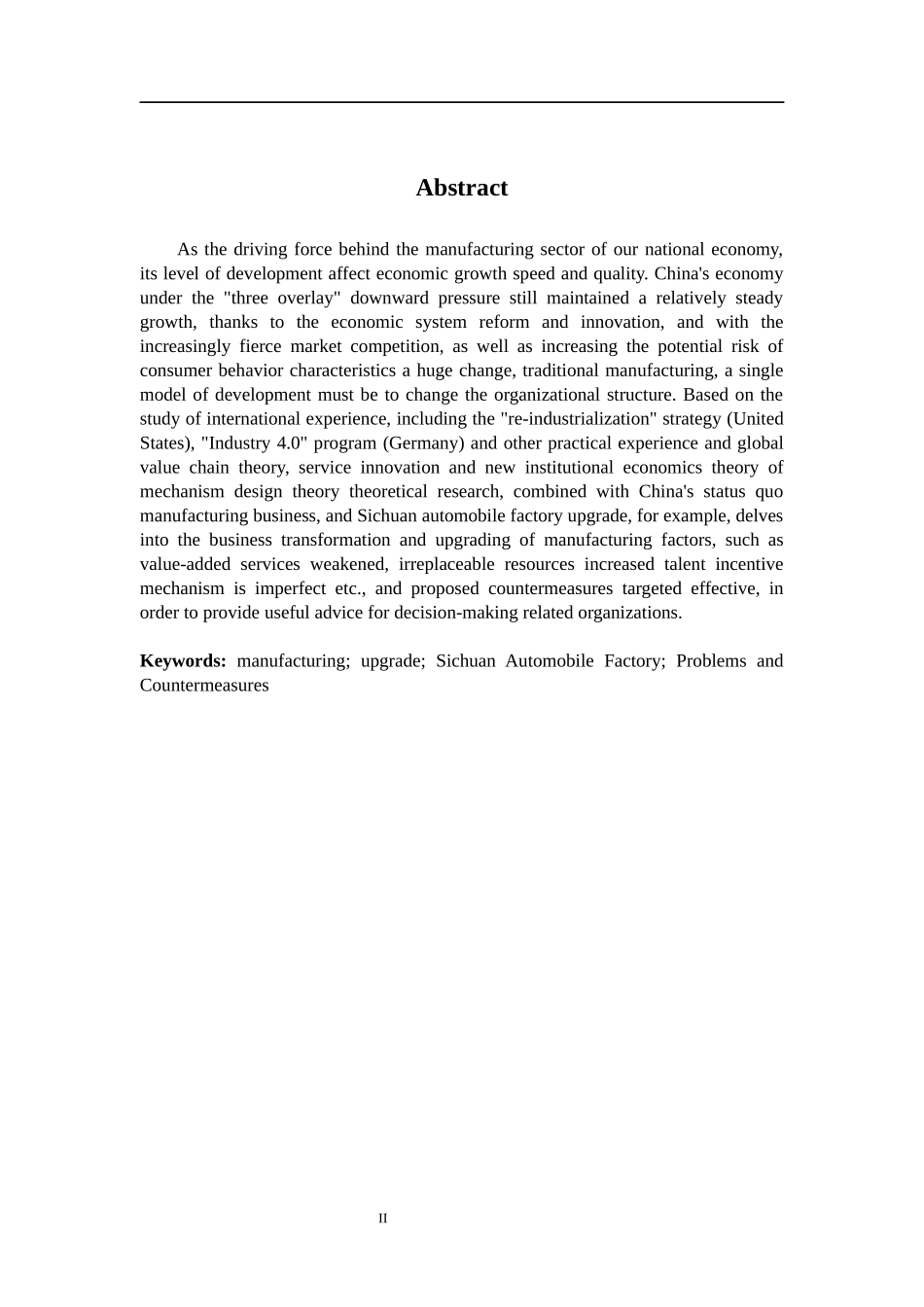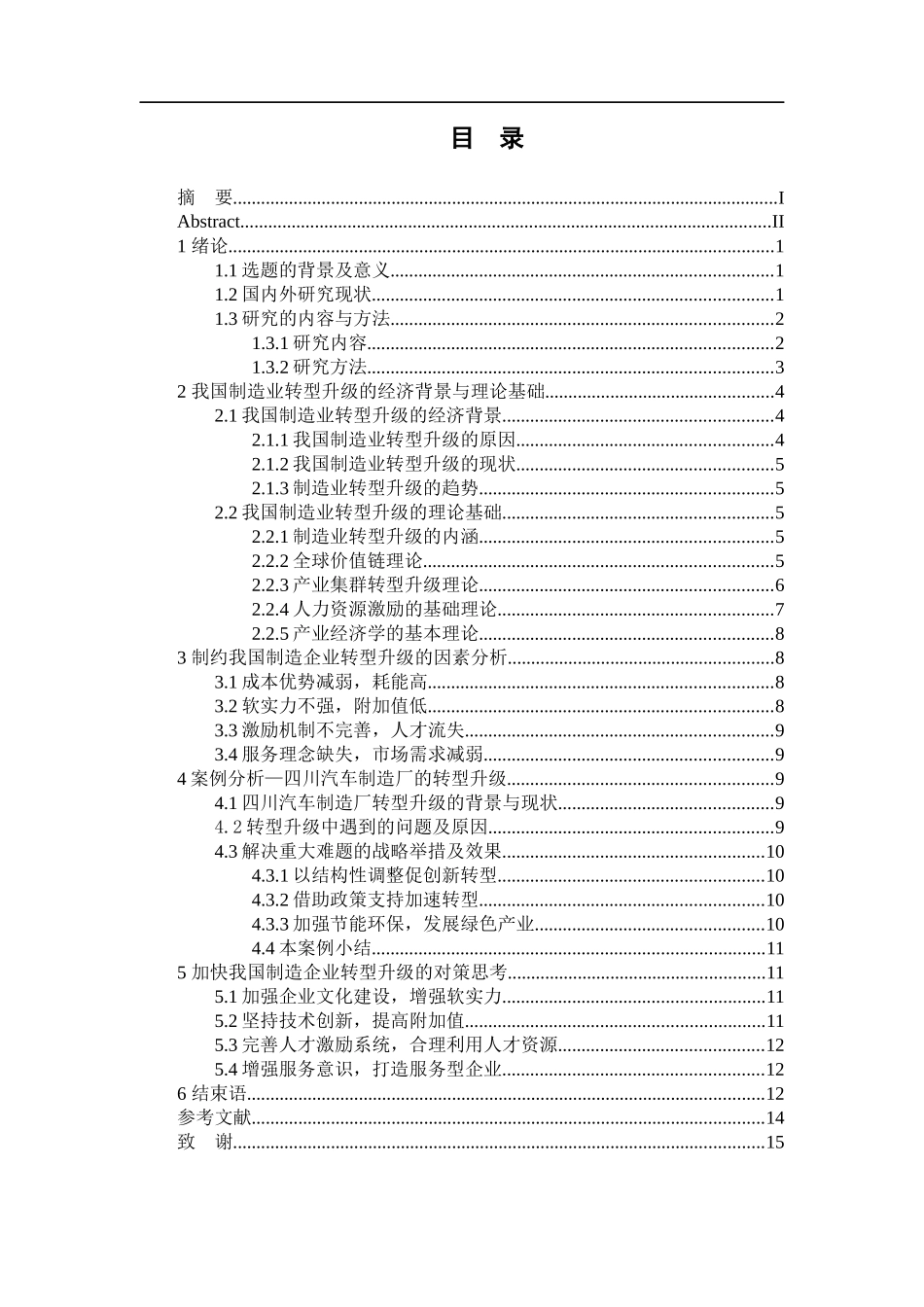I我国制造企业转型升级的制约因素及对策研究----基于四川汽车制造厂转型升级的案例摘 要制造业作为我国国民经济的原动力,其发展水平影响国民经济增长的速度与质量。我国经济在“三期叠加”的下行压力下仍旧保持着较为平稳的增速,得益于经济体制的改革与创新,而随着市场竞争日益激烈、潜在风险的不断增多以及消费者行为特点的巨大改变,制造业传统的、单一的发展模式于组织结构必须得以转变。本文立足于对国际经验的学习,包括“再工业化”战略(美国) 、“工业 4.0”计划(德国)等实践经验与全球价值链理论、服务创新理论和新制度经济学中的机制设计理论等理论研究,结合中国制造企业经营现状,并以四川汽车制造厂转型升级为例,深入探究了制约我国制造企业转型升级的因素,如增值服务弱化、资源优势可替代性增高、人才激励机制不完善等,并提出了具有针对性的行之有效的对策,以期为相关组织的决策提供有用的建议。关键词:制造企业;转型升级;四川汽车制造厂;问题与对策IIAbstractAs the driving force behind the manufacturing sector of our national economy, its level of development affect economic growth speed and quality. China's economy under the "three overlay" downward pressure still maintained a relatively steady growth, thanks to the economic system reform and innovation, and with the increasingly fierce market competition, as well as increasing the potential risk of consumer behavior characteristics a huge change, traditional manufacturing, a single model of development must be to change the organizational structure. Based on the study of international experience, including the "re-industrialization" strategy (United States), "Industry 4.0" program (Germany) and other practical experience and global value chain theory, service innovation and new institutional economics theory of mechanism design theory theoretical research, combined with China's status quo manufacturing business, and Sichuan automobile factory upgrade, for example, delves into the business transformation and upgrading...


